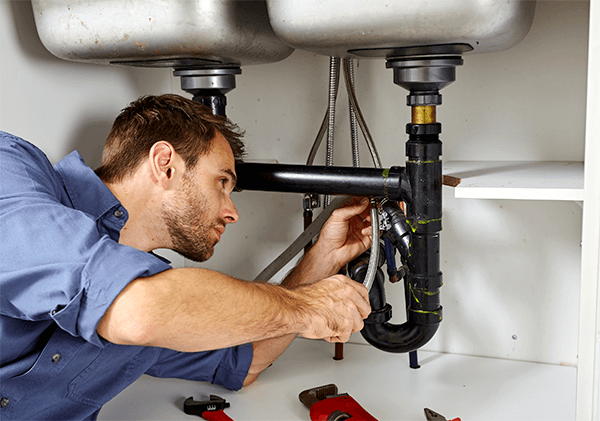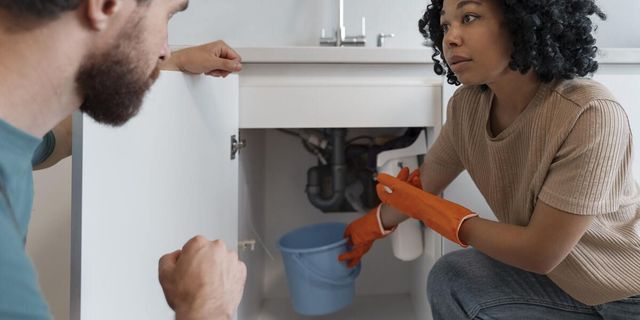This great article underneath involving What to Do During a Plumbing Emergency is pretty much engaging. Read it for your own benefit and decide what you think of it.

Pipes emergency situations can strike any time, creating stress and anxiety and possible damages to your home. Whether it's a ruptured pipeline, a stopped up drainpipe, or a leaking faucet, understanding how to manage the situation till a specialist plumbing professional gets here can conserve you from additional problems. This short article provides important emergency pipes ideas to assist you reduce damage and regain control throughout a pipes dilemma.
Shut off the Water Supply
The first step in any kind of pipes emergency is to shut off the water. For local problems, such as a leaking tap or bathroom, shut off the valve near the component. In the case of a major leakage or ruptured pipe, situate your home's primary water shut-off valve and transform it off promptly. Understanding the location of these valves beforehand can conserve important time throughout an emergency situation.
Shut Off Your Hot Water Heater
In specific emergencies, such as a ruptured pipe, it's wise to shut down your water heater. This prevents getting too hot or damage to the device when water stops flowing. Shut off the power supply to the water heater (electrical or gas) and let it cool to prevent potential dangers.
Temporarily Quit a Burst Pipeline
A burst pipeline can result in substantial water damage in minutes. To alleviate the issue:
Call a professional plumbing professional instantly to resolve the problem completely.
Have an Emergency Plumbing Package
Prepare a basic pipes emergency situation kit to manage minor issues properly. Your kit must consist of:
Having these tools on hand can make a substantial difference in your capacity to handle emergency situations.
Unclog Drains Safely.
A stopped up drainpipe can be an aggravating and untidy concern. Below's just how to tackle it:.
If these methods don't work, prevent utilizing extreme pressure, as it might get worse the clog.
Manage Overflowing Toilets.
An overflowing toilet can cause immediate mayhem. Right here's what you ought to do:.
Address Small Leakages with Momentary Repairs.
Small leakages can swiftly end up being significant troubles if left untreated. Utilize these temporary solutions up until professional aid shows up:.
While these fixes aren't irreversible, they can help lessen water loss and damage.
Manage Frozen Pipeline Meticulously.
In chillier climates, frozen pipes are a typical emergency. If you presume a frozen pipeline:.
Know When to Call a Specialist.
While quick fixes can help briefly, certain plumbing concerns require instant specialist interest. Call a plumbing professional if:.
Promptly getting in touch with an expert makes sure the concern is resolved correctly and avoids additional difficulties.
Protect against Further Damage.
Taking quick action to reduce damage can conserve you money and time in the future. Right here's just how:.
Final thought.
Pipes emergency situations can be frustrating, yet with the appropriate expertise and devices, you can take care of the scenario successfully up until assistance shows up. By shutting off the supply of water, addressing tiny leakages, and utilizing short-term repairs, you can reduce damage and maintain your home safe. Bear in mind, these pointers are momentary options; always consult an accredited plumbing to deal with the source of the issue. Preparation and quick thinking are your ideal allies in any kind of pipes emergency situation.
8 Helpful Tips for Managing Plumbing Emergencies at Home
If your plumbing system hasn’t failed once, wait for it because almost everyone has a story to tell. Sometimes, it could be simple emergencies such as a leaking pipe, a blocked cistern, or even a big burst pipe. In situations like this, you need to have some handy tips to save you some money and from possible damages.
Take care of minor issues early.
Sometimes, you could have avoided an emergency by taking proactive measures while it was still early. Some major plumbing emergencies can be a result of an ignored minor issue. We recommend that you have items like plumbing tapes and other related items. A plumbing tape can allow you to manage minor leaks before the plumber arrives.
Cut off the water supply.
This tip is essential in almost any type of leakage problem. For problems like minor leakages in the toilet or kitchen, turn off the supply that takes water to the affected pipes. If the leakage is a major pipe, you must shut off the supply valve to the entire building. This will help you avoid flooding your home and neighbors if you share a flat.
Know your plumbing system
Folks typically move into a new apartment without understanding the water supply around the building. This can prove disastrous if a water emergency arises and the plumber is far away. The previous tip will prove useless if you don’t practice this one. More importantly, know where your water shut-off valve is located – you’ll need that knowledge to prevent potential home floods.
Have some common handy tools
There are lots of plumbing emergencies that you can handle without hiring a plumber. That’s why you must keep some tools available always. Some tools that you can use to fix simple plumbing emergencies easily include plumbing tapes, screwdrivers, thread seal tapes, plungers, pliers, tape measures, and rubber gloves.
Insulate your pipes from cold
You’ll save yourself from many plumbing expenses if you protect your water pipes from the cold. This is because of the harmful effects that cold weather can have on your pipes. During winter, your pipes can burst from being overly expected to freezing temperatures. So, make sure insulators are there to keep the pipes working correctly.
Avoid practices that will clog your toilet.
Many people indulge in practices that can damage the plumbing system of the entire building. One of these is when they use their toilet to dispose-off garbage. They flush all kinds of things, such as paper towels, bandages, hairs, female sanitary products, etc., down the toilet. This will block your toilet in the long run, incurring unnecessary expenditures. Dump such waste in the trash instead.
Check your dials regularly.
Sometimes, there could be leakages in your home without noticing them in time. So, constantly monitor your water meter dial. If the dial is reading when there is nobody using water, this is an indicator that there is leaking. Check for leaks immediately. Call a plumber as soon as possible if you can’t find any.
https://www.constructionplacements.com/8-helpful-tips-for-managing-plumbing-emergencies-at-home/

I have been very curious about Plumbing Emergencies: Tips on What To Do Before and I am praying you enjoyed the new blog entry. For those who enjoyed our post if you please do not forget to pass it around. I appreciate your readership.
Click Here